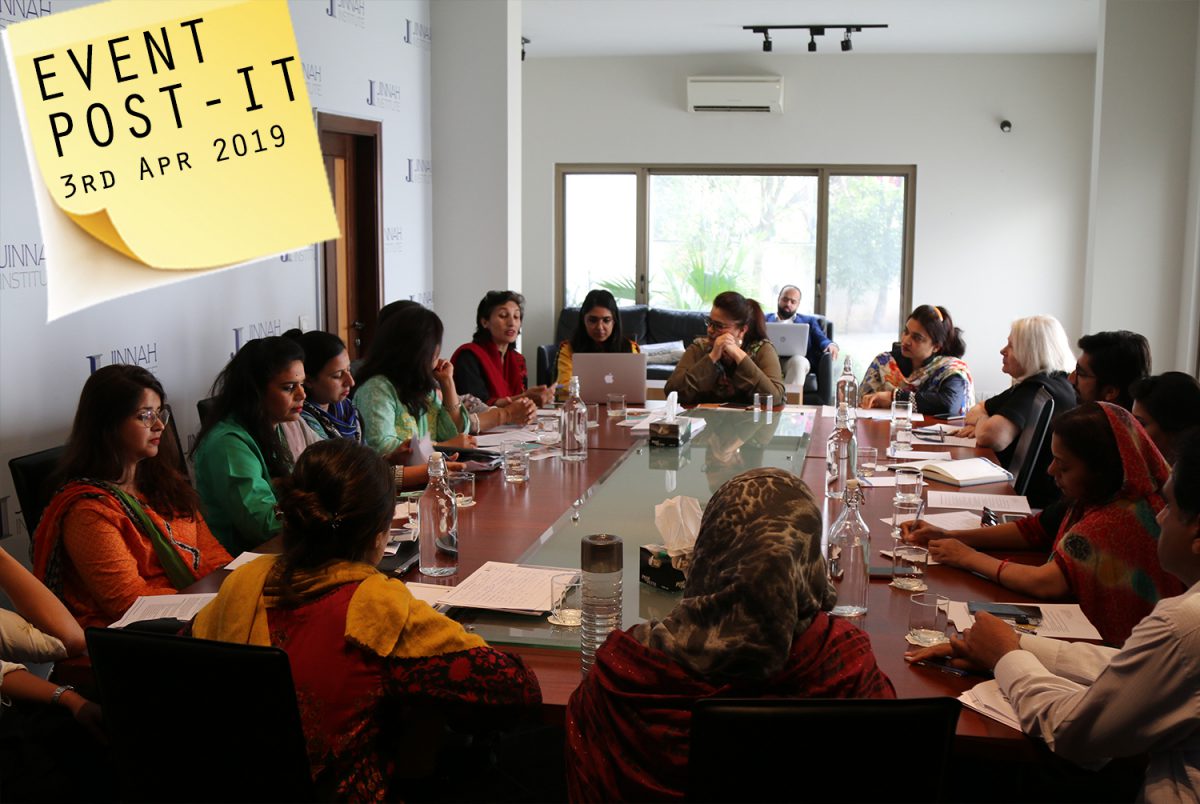Round Table
Taking Stock of Education Policy and Practice
Date: April 3, 2019
On 3rd April, Jinnah Institute held a roundtable titled “Taking Stock of Education Policy and Practice: How Inclusive is Education in Pakistan?” that discussed education policy reform and interventions undertaken by education practitioners over the last few years to tackle the national crisis. The event was attended by education policy experts and media representatives, and was moderated by Jinnah Institute’s Meera Nadeem.
Participants commented on the federal government’s intention to improve the status of education in Pakistan, and concentrate focus in key areas, including the introduction of a uniform education system. Participants recognized this as both controversial and unrealistic, as there were three education systems running in parallel in Pakistan, including madrassas, private, and public schools. Reconciling these systems is likely to cause disruption and loss in learning and quality, and participants felt that creating a reconciled ‘hybrid’ education system is a long term undertaking that will take several years to devise. They also felt that the government’s wishlist on education needed more grounding in practitioners’ experiences and the absence of guiding policy frameworks for education demonstrated both lack of understanding among decision makers and lack of political attention towards Pakistan’s education emergency.
Participants described the developments over the last decade in the education sector with assistance from international donor agencies, which have significantly improved the capacity of education providers, created evidence for gaps and competencies, and mainstreamed statistics for out-of-school children and ghost schools. They also underscored that donor-driven outcomes in any policy sphere can bring about medium term results, usually spanning the life-cycle of projects. While these outcomes may be favourable, there has to be an institutionalized ‘handover’ from donors to provincial governments that allows the positive momentum to continue. They felt the reason behind slow progress in improving the state of education was an unwillingness to institutionalize interventions taken by donors and civil society partners.
Discussing the need for curricula reform, education practitioners commented on the critical importance of teacher trainings. Participants felt that teachers often gave stiff resistance to curricula changes themselves, and were unwilling to adapt their worldview or instill critical thinking among students. Cultural biases and ideological inclinations are often the result of curricula and tutelage absorbed by students at every level. Education innovators commented that students are not encouraged to think creatively or create innovative solutions to challenges faced by their communities, and stressed the need for teaching non-cognitive skills such as kindness and empathy as early as pre-school. One way of resolving the ‘national crisis’ of imagination and prejudice is to train teachers to think critically, and then inculcate human skills in their students. Participants also discussed pay scales among teachers that de-incentivized them from improving performance.
Participants discussed practices that created exclusion for marginalized groups, including disabled students for whom assistive aids, ramps or toilet facilities are not catered for. Participants informed that funds for schools for children with disabilities are allocated to the social welfare department, which meant that those funds may or may not be released depending on official enumeration of children with disabilities. To make education more inclusive, participants discussed that school management also needs to be made more diverse. While in private schools, it is mostly women who teach, in public schools, there are more men teaching than women. Public schools often do not have counselors or psychiatrists who can assist children address emotional challenges they face. Participants agreed that without adequate mentorship and role models, students may not be able to realize their full potential, and this too is a much-needed intervention.
The media’s role in shaping public perceptions and discourse, and policies was also discussed. Rather than producing more ‘click-bait’ articles that promote political sensationalism, media persons agreed that news about Pakistan’s education crisis needs to be given more coverage and connected to larger political news stories that allow maximum readership. They agreed that educationists and media practitioners should come together to advocate a well devised education policy and implementation plan.

